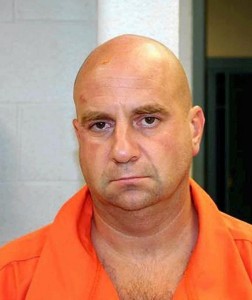Connecticut Supreme Court Declared Death Penalty Unconstitutional … Allows 11 on Death Row to Live Including heinous Rapist & Murders Joshua Komisarjevsky and Steven Hayes
Posted in: Death Penalty,Murder,Rape,WTF
Shame on the Connecticut Supreme Court … Allows rapist and murders live without parole.
The Connecticut Supreme Court has declared the death penalty unconstitutional on the grounds that it is cruel and unusual punishment. REALLY? You know what I deem cruel and unusual punishment, the torturing, molesting, raping and murdering of 48 year old Jennifer Hawke-Petit and her two daughters, Michaela and Hayley. How could anything else but the death penalty be the punishment for two individuals who would commit such heinous and vile acts? It is times like this that pubic stonings should be allowed.
But instead a bunch of bleeding heart liberals would rather spare the lives of rapists and murders. I wonder if the justices and the libs would feel the same if it happened to members of their families or their friends?
Petit Family
The Petit family home-invasion murders drew international attention: Two men raped and strangled a mother and molested one of her daughters in Connecticut. Then they set fire to the home, killing the woman and her 11- and 17-year-old daughters.
On Thursday, the Connecticut Supreme Court declared the death penalty unconstitutional, sparing the lives of the two killers and nine other convicts who were on death row when the state abolished capital punishment in 2012.
Joshua Komisarjevsky and Steven Hayes were sentenced to death for the slayings of Jennifer Hawke-Petit, 48, and her daughters, Michaela and Hayley.
“I’m not surprised at this decision,” said Michael Dearington, who prosecuted Komisarjevsky and Hayes, declining to elaborate.
In 2012, Gov. Dannel Malloy signed a bill into law that abolished the death penalty, making the state the 17th in the nation to abandon capital punishment and the fifth in five years to usher in a repeal. But inmates already on death row when the law passed were considered exempt from the law and could be executed.
The Supreme Court decision stems from the appeal of a defendant whose lawyers argued that executions carried out after the state abolished the death penalty would represent cruel and unusual punishment. That inmate, Eduardo Santiago, faced the death penalty after being convicted of a murder in West Hartford in 2000 in exchange for a snowmobile.
Steven J. Hayes
Joshua A. Komisarjevsky



Social Web